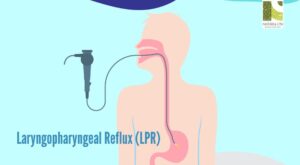Herpes Simplex Virus (HSV): What You Need to Know

Herpes simplex virus (HSV) is one of the most common viral infections affecting humans worldwide. Despite its prevalence, the virus remains misunderstood, often shrouded in stigma and misinformation. This blog aims to shed light on HSV—what it is, how it spreads, the symptoms it causes, and how it can be managed effectively.
What is Herpes Simplex Virus?
The herpes simplex virus belongs to the Herpesviridae family and exists primarily in two forms:
- HSV-1 (Herpes Simplex Virus Type 1): Typically causes oral herpes, presenting as cold sores or fever blisters around the mouth and face.
- HSV-2 (Herpes Simplex Virus Type 2): Usually causes genital herpes, characterized by sores or lesions in the genital or anal area.
Both types are highly contagious and can infect both the mouth and genitals through oral, genital, or anal contact.
How is HSV Transmitted?
HSV is primarily transmitted through direct contact with:
- Infected saliva or genital secretions
- Active herpes sores or skin with viral shedding (even without visible sores)
- Kissing, oral sex, vaginal or anal intercourse
- In rare cases, vertical transmission from mother to baby during childbirth (neonatal herpes)
Importantly, asymptomatic shedding means individuals can spread the virus even when they don’t have visible symptoms.
Symptoms of HSV Infection
HSV symptoms can vary significantly from person to person. Some people never experience noticeable symptoms, while others may have recurring outbreaks.
Primary Infection:
- Flu-like symptoms (fever, fatigue, swollen lymph nodes)
- Painful blisters or ulcers on mouth, genitals, or anus
- Burning or itching sensation before sores appear
- Difficulty urinating (in genital herpes)
Recurrent Outbreaks:
- Typically less severe than the initial infection
- Triggered by stress, fatigue, menstruation, illness, or sun exposure
- Tingling or burning sensation may precede recurrence
How is HSV Diagnosed?
Diagnosis typically involves:
- Clinical examination of symptoms and visible lesions
- PCR testing (Polymerase Chain Reaction) to detect HSV DNA
- Viral culture from swabbed lesions
- Blood tests to detect HSV antibodies (to distinguish between past and recent infection)
Treatment and Management
There is no cure for HSV, but antiviral medications can help manage symptoms and reduce transmission:
Common Medications:
- Acyclovir
- Valacyclovir
- Famciclovir
These drugs can:
- Shorten the duration of outbreaks
- Lessen the severity of symptoms
- Reduce the frequency of recurrences
- Lower the risk of passing the virus to sexual partners
Lifestyle and Prevention:
- Use condoms and dental dams
- Avoid sexual contact during outbreaks
- Practice good stress management
- Consider daily suppressive therapy if frequent outbreaks occur
- Open and honest communication with partners
Herpes and Pregnancy
Pregnant women with HSV, particularly those experiencing a first outbreak during pregnancy, must be closely monitored. HSV can pose serious risks to the newborn, especially if transmission occurs during delivery.
Doctors may recommend:
- Antiviral prophylaxis during the last trimester
- Cesarean section if active genital lesions are present at the time of delivery
HSV and Other Health Conditions
- Herpes Simplex Encephalitis (HSE): A rare but serious complication where HSV affects the brain.
- Ocular Herpes: HSV infection of the eye, which can lead to vision loss.
- Immunocompromised patients: People with weakened immune systems (e.g., HIV-positive individuals) are at greater risk for severe outbreaks and complications.
HSV in Numbers
- Over 3.7 billion people under the age of 50 have HSV-1 globally.
- Around 491 million people aged 15–49 are infected with HSV-2.
(Source: WHO)
Living with HSV
Though a chronic condition, HSV does not define your health or your worth. Millions live full, healthy, and fulfilling lives with herpes. The key lies in:
- Awareness
- Medical support
- Healthy relationships
- Mental well-being
Herpes simplex virus is more common than you think, and with the right information and medical care, it can be effectively managed. Reducing the stigma around HSV is essential for supporting those living with the condition.
If you suspect HSV or want more clarity, speak with a trusted medical professional. Remember, knowledge is power—and it begins with understanding.
Reference :
1.Herpes simplex virus
2.About Genital Herpes
3.Herpes simplex virus infection
4.Genital herpes





